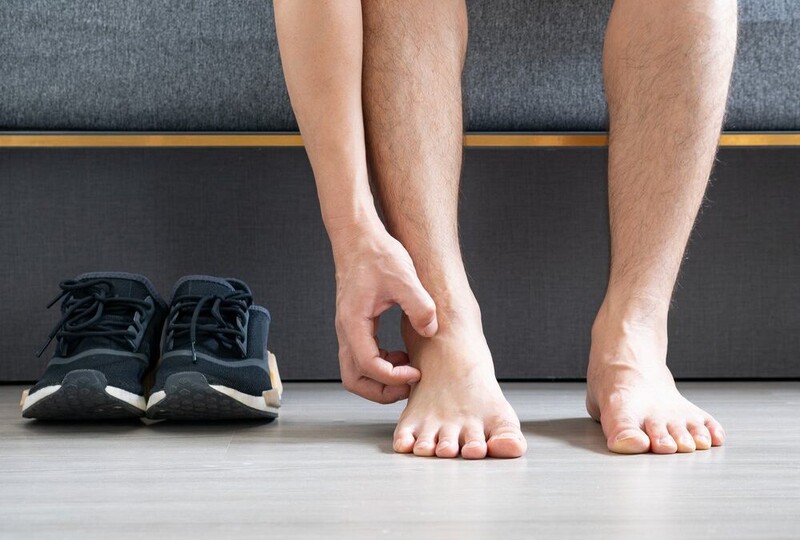Understanding Runner's Itch and Its Causes
Itchiness for runners is something seen often, and many athletes feel it while they run. This uncomfortable feeling of itch can happen due to different reasons and could affect how well you perform or enjoy your running. We must know why this happens to deal with the problem properly. This article is going to investigate the main reasons for itchiness during running, possible solutions, and guidance on how it can be avoided in the future.
Physiological Factors Behind Runner's Itch
A main cause of itching for runners is the rise in blood flow to the skin while exercising. When you are running, your body temperature goes up and causes blood vessels to become wider. This change can make nerve endings in the skin more responsive and this causes a feeling of itchiness. Moreover, the rubbing between your skin and clothes might make the itchiness worse, especially in spots where your skin touches the fabric. Knowing these body reactions can assist you to realize why you may feel itchy when running.

If you do actions that require lots of physical effort, your body will put out histamines because it is part of the inflammation reaction. This can make feelings of itchiness stronger. Histamines are one reason for irritation on skin and this feeling increases especially in people who have very sensitive bodies likely to react more intensely than others. Also, if before going jogging you don't prepare your body adequately with warm-up exercises or stretching routines, then a sudden increase in blood flow inside your body could cause an even stronger itching sensation as your system tries to deal with exercise effects.
- Sensitivity: Some individuals may have heightened sensitivity to histamines, leading to more frequent occurrences of runner's itch.
- Warm-up: A proper warm-up may help mitigate symptoms by gradually increasing blood flow, making the transition smoother.
Environmental Triggers for Itching
Other elements from outside also play a big part in causing the itch for runners. When temperature and moisture levels change, it can affect how much water your skin has, which can make it dry and give discomfort. If you run when it is hot and damp, sweat usually forms that may annoy the skin leading to an itch feeling. On the other hand, if you run in cold and dry weather conditions, this could result in your skin turning into a dry and flaky state which can cause more discomfort. Knowing these environmental impacts can assist you in adjusting your running regimen accordingly.
Also, pollutants and allergens in the environment like pollen or dust, can cause allergic reactions that lead to itching during physical activity. If you easily get allergies, think about tracking pollen counts and deciding to run when these levels are low to reduce the chance of itching.
- Allergens: Common allergens like pollen can exacerbate itching; consider running during low pollen days if you're sensitive.
- Hydration: Staying well-hydrated can help your skin cope better with environmental stressors, potentially reducing itching.
Skin Conditions Contributing to Itchiness
Some skin problems may also help to cause a runner's itch. If you have things like eczema, psoriasis, or hives they can get worse with exercise. You might find that running makes your skin itchy if you've had these kinds of issues before. Finding out if there are any hidden skin problems is very important because you may need particular treatment to properly relieve symptoms. Talking with a skin doctor can give personalized advice for taking care of your skin health while you run.
Certain skin issues might not be obvious until they are activated by physical activity. For example, conditions like contact dermatitis may occur because of exposure to sweat and specific fabrics. Observing any reactions on your skin during or after jogging can assist in recognizing if particular materials or circumstances contribute to the issue.
- Tracking: Keeping a diary of your runs and any skin reactions can help pinpoint triggers for runa ner's itch.
- Fabric choice: Consider testing different fabric types to see which ones irritate your skin less during physical activities.
How to Relieve Runner's Itch
To get relief from itchiness related to running, we need a mix of quick and precautionary steps. If you feel itchy when running, think about using an anti-itching cream on your skin before going a for run. Usually, types of creams have hydrocortisone or other beneficial material that can reduce annoyance in the skin. Moreover, using clothes made from materials that absorb moisture can lessen rubbing and keep your skin without dampness, which aids in stopping itchiness. Following a run, taking a bath with cold water might comfort you and clean off any substances causing irritation gathered during the time of exercising.

After running, establishing particular skincare routines can greatly assist in recuperation of moisturizers without fragrance could be beneficial in repairing your skin's protective layer, especially if you have a habit of regular running. Moreover, if you consistently feel itchiness on your skin, thinking about modifying how you hydrate may help as maintaining optimum hydration is vital for the wellness of our skin.
- Moisturizing: Using a fragrance-free moisturizer after running can help restore your skin and prevent dryness.
- Hydration: Adjust your hydration intake to ensure your skin remains well-hydrated, potentially reducing itchiness.
Preventive Strategies for Runner's Itch
Avoiding is the main thing to lower the happening of itch in runners. Picking the right clothes is very important. Choose types of fabric that let air pass, and can absorb sweat so as not to annoy your skin. Drinking water before running, during run time, and after finishing your run could also support keeping moisture on your skin steady which will decrease chances for dryness or itching feeling. Adding usual care for your skin, like putting moisturizer after exercise, can give more protection to your skin and preserve its health. These careful actions may assist in having better comfort while running.
It is very important to keep clean habits to stop runner's itch. Regularly cleaning your running equipment removes sweat and bacteria which can cause skin irritation. Also, pay attention to the products you're using on your skin such as creams or sun-protective lotions because they could lead to itching if they have irritants in them.
- Hygiene: Regularly wash running clothes to minimize the buildup of sweat and bacteria that may irritate.
- Duct choice: Choose skin products that are hypoallergenic and free of harsh chemicals to reduce potential irritation.
Conclusion
Finally, the discomfort of a runner's itch is a problem many face and can be handled well with knowledge and precautionary actions. When you know its reasons and apply good solutions for relief, your running experience gets better since it comes with several advantages. By selecting the right clothes or taking care of your skin properly, tackling issues related to a runner's itch will result in more pleasure while doing activities like running comfortably.












